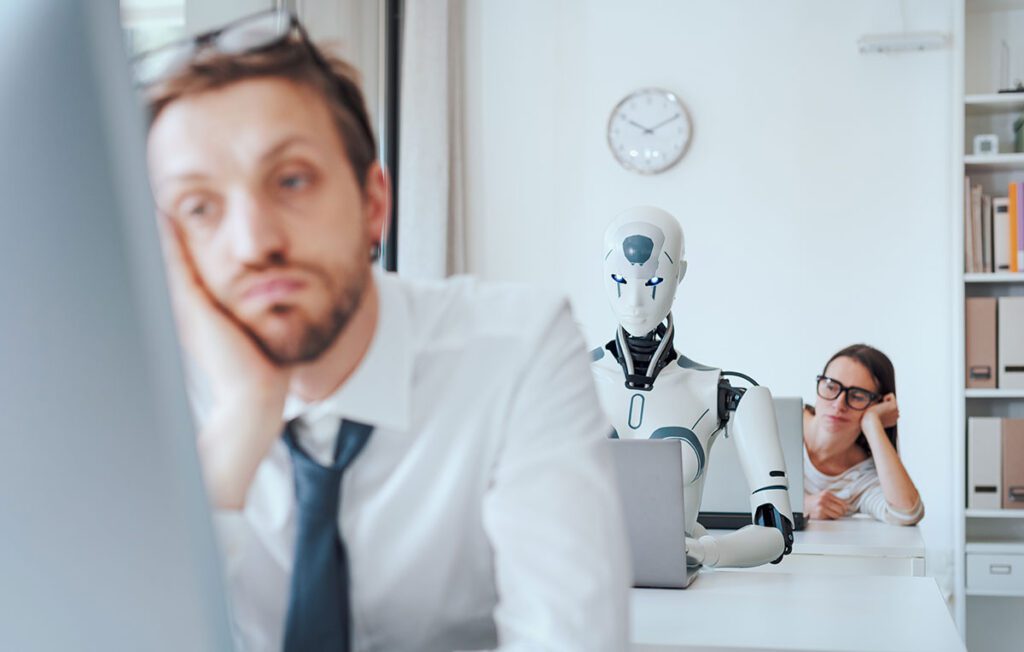Why We Fear Robots: A Profound Plunge into the Mental Foundations of Technophobia
Table of Contents

1. Presentation
(Why We Fear Robots: A Profound Plunge into the Mental Foundations of Technophobia)
The fear of technological innovation, particularly robots, or technophobia, has grown in importance as computers and robots become more integrated into our daily lives. This narrative explores the psychological underpinnings of this fear, examining why we fear robots and the implications of these feelings of unease for our interactions with new technologies.
2. Figuring out Technophobia
(Why We Fear Robots: A Profound Plunge into the Mental Foundations of Technophobia)
Technophobia alludes to a nonsensical trepidation or fear about innovation and mechanical progress. This dread can appear in different ways, including:
Anxiety toward Loss of Control: Worries that innovation, particularly robots, will outperform human control or independence.
Feeling of dread toward Occupation Loss: Uneasiness about robots and robotization supplanting human positions and causing monetary insecurity. – Feeling of dread toward the unknown: doubt of new advances because of vulnerability about their effects and expected risks.
3. The Mental Underlying Foundations of Technophobia
(Why We Fear Robots: A Profound Plunge into the Mental Foundations of Technophobia)
A few mental variables add to technophobia:
Mental Dissonance: The distress experienced when new advances challenge existing convictions or figuring out, prompting obstruction and dread.
Uncanny Valley Effect: The sensation of disquiet or uneasiness when robots or counterfeit creatures show up practically human yet not exactly, causing mental distress.
Existential Anxiety: The trepidation that robots and trend setting innovation might provoke basic human qualities or lead to existential dangers, like loss of human character or control. – *Social and Moral Concerns*: Stresses over the moral ramifications of robots and simulated intelligence, including worries about security, observation, and moral independent direction.
4. Verifiable and Social Impacts
(Why We Fear Robots: A Profound Plunge into the Mental Foundations of Technophobia)
By and large and socially, the apprehension about robots and innovation has been formed by different impacts:
Sci-fi and Media: Portrayals of robots in sci-fi frequently depict them as dangers or enemies, building up fears and tensions. Movies and writing like 2001: A Space Odyssey and The Eliminator have added to the impression of robots as perilous elements.
Mechanical Disruption: Verifiable occasions where innovation has prompted critical cultural changes or interruptions, like the Modern Upheaval, have made enduring feelings of dread about the effects of mechanical advancement. – Social Narratives: Various societies have changing viewpoints on innovation and robots. For instance, Western societies could stress the expected risks and moral predicaments, while different societies might zero in additional on the advantages and progressions.
5. Contextual analyses and Models
(Why We Fear Robots: A Profound Plunge into the Mental Foundations of Technophobia)
Instances of technophobia in real life include:
The Luddite Movement: In the mid nineteenth century, the Luddites were a gathering of English specialists who obliterated hardware they trusted undermined their positions and jobs, reflecting early feelings of dread of mechanical uprooting.
Man-made intelligence and advanced mechanics in healthcare: A few patients express nervousness about connecting with automated frameworks in medical services, expecting that mechanization might think twice about care or direction. Independent Vehicles: Public worry about self-driving vehicles, energized by worries over security, dependability, and control, shows contemporary apprehensions about mechanical technology and computerization.
6. The Effect of Robots on Society
(Why We Fear Robots: A Profound Plunge into the Mental Foundations of Technophobia)
The effect of robots on society incorporates both possible advantages and difficulties:
The effect of robots on society incorporates both expected advantages and difficulties:
Financial Benefits: Robots can increment efficiency, diminish costs, and perform risky or redundant errands, possibly prompting monetary development and worked on personal satisfaction.
Social Disruption: Quick headways in advanced mechanics and robotization can prompt work relocation, financial disparity, and changes in friendly designs. Moral Considerations: The reconciliation of robots into different parts of life brings up moral issues about independence, security, and the job of innovation in human navigation.

7. Systems for Tending to Technophobia
(Why We Fear Robots: A Profound Plunge into the Mental Foundations of Technophobia)
Tending to technophobia includes a few systems:
Training and Awareness: Giving exact data and schooling about innovation and its advantages can assist with mitigating fears and misguided judgments.
Straightforwardness and Involvement: Including people in general in conversations about the turn of events and execution of new advances can cultivate trust and lessen uneasiness.
Moral Guidelines: Laying out and complying with moral rules for the turn of events and utilization of innovation can address moral worries and advance capable development. Human-Driven Design: Planning innovation considering client needs and concerns can improve acknowledgment and diminish fears, guaranteeing that robots and simulated intelligence frameworks line up with human qualities and assumptions.
8. Conclusion
(Why We Fear Robots: A Profound Plunge into the Mental Foundations of Technophobia)
The feeling of dread toward robots and innovation, or technophobia, is established in a mind boggling exchange of mental variables, verifiable encounters, and social impacts. Understanding these roots can help address and relieve fears, advancing a more adjusted and informed way to deal with mechanical headways. As robots and mechanization become progressively coordinated into our lives, tending to technophobia is significant for encouraging a positive relationship with innovation and guaranteeing its advantages are acknowledged while limiting likely dangers.
Please check the American Psychological Association (APA) RESEARCH REPORT on “The Rise of Robots Increases Job Insecurity and Maladaptive Workplace Behaviors: Multimethod Evidence.”
Please check for articles on other categories
Appeal to www.USAinfy.com Readers
Thank you for visiting www.USAinfy.com! We greatly value your presence here and your interest in our articles. Your thoughts and feedback are incredibly important to us, and we’d love to hear from you. Please take a moment to leave a comment on our articles and share your insights. Your feedback helps us improve and deliver more content that matters to you.
If you enjoyed the article or found it helpful, don’t forget to share it with your friends and family. Together, we can continue building a community that stays informed and engaged. Let us know what you think, and feel free to share your suggestions for future topics!